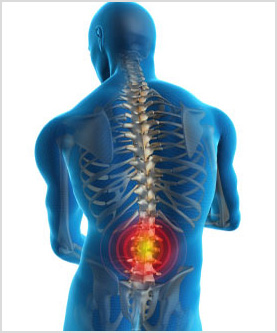|
The spinal cord contains the nerves that carry messages between your brain and body. The cord passes through your neck and back. A spinal cord injury is very serious because it can cause loss of movement (paralysis) below the site of the injury.
 Causes: A spinal cord injury may be caused by: Causes: A spinal cord injury may be caused by:
• Bullet or stab wound
• Traumatic injury to the face, neck, head, chest,
or back (for example, a car accident)
• Diving accident
• Electric shock
• Extreme twisting of the middle of the body
• Landing on the head during a sports injury
• Fall from a great height
Symptoms: Symptoms of a spinal cord injury may include any of the following:
• Head that is in an unusual position
• Numbness or tingling that spreads down an arm or leg
• Weakness
• Difficulty walking
• Paralysis (loss of movement) of arms or legs
• Loss of bladder or bowel control
• Shock (pale, clammy skin; bluish lips and fingernails; acting dazed or semiconscious)
• Lack of alertness (unconsciousness)
• Stiff neck, headache, or neck pain |